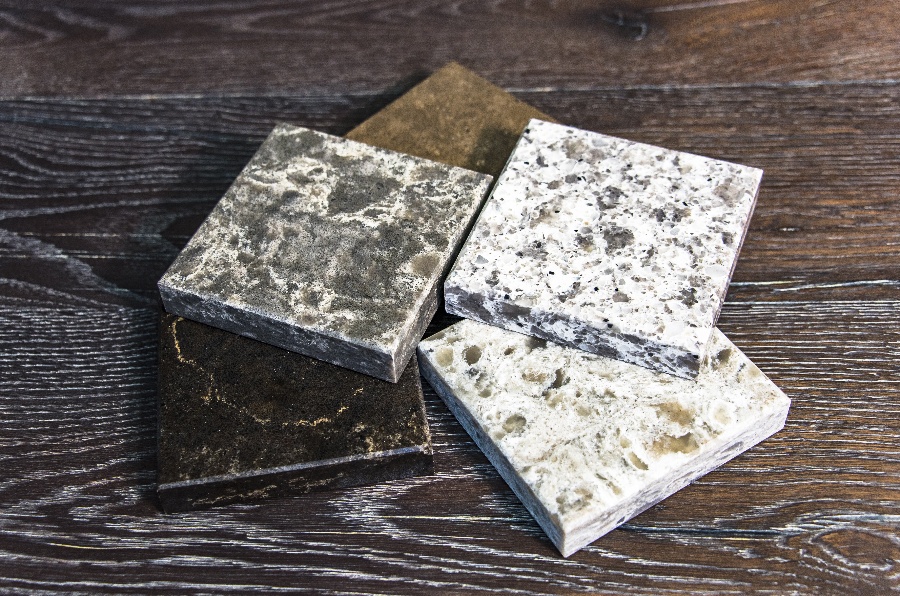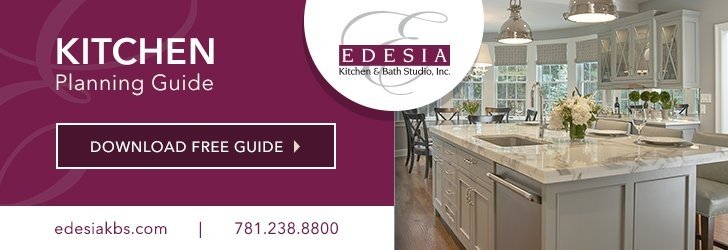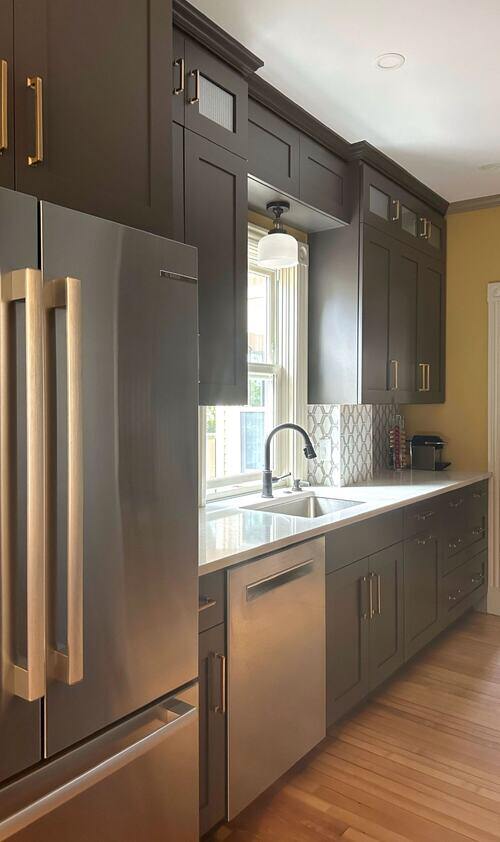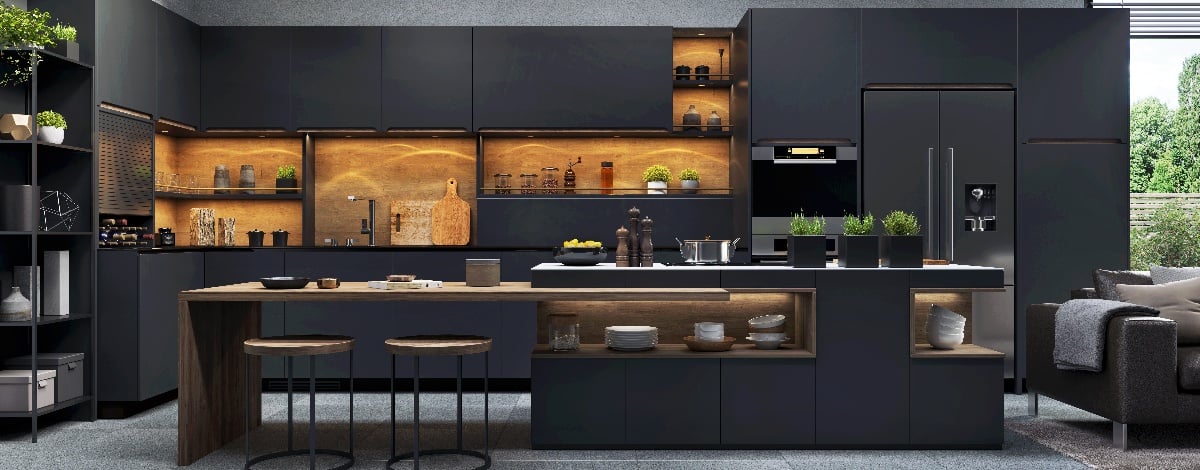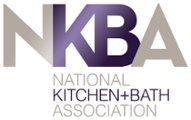Choosing the right countertop for your kitchen or bathroom is an important choice. This is a surface that will stick with you for years and may stay in your home for a decade or more.
So it's a good idea to do your research and choose wisely. The three primary options for countertop stone are marble, granite, and quartz. The unique thing about quartz countertops is that while quartz is a natural and very hard mineral, quartz countertops are a manmade composite.
This makes them versatile but also comes with a unique set of qualities. What are the pros and cons of quartz countertops?
What Exactly Are Quartz Countertops?
Quartz countertops are made of 90% ground quartz dust mixed with binding resins and decorative pigment. The pigment can be swirled to look like marble veins or chips of recycled glass and metal can be mixed in for that flecked granite look.
Once the composite slabs are made, they can be used just like natural stone for countertops and surfaces. Now let's dive into what's great and no-so-great about quartz compared with marble and granite alternatives.
Pros of Quartz Countertops
-
Custom Appearance Design
- Because Quartz is a manmade slab, it can be designed to look like anything you want. The design flexibility is incredible with a wide range of colors, grains, and flecks to choose from. You can also pick colors and patterns that rarely occur in natural stone but perfectly match your design vision.
- Because Quartz is a manmade slab, it can be designed to look like anything you want. The design flexibility is incredible with a wide range of colors, grains, and flecks to choose from. You can also pick colors and patterns that rarely occur in natural stone but perfectly match your design vision.
-
Moz Hardness - Resistance to Scratches and Chips
- Quartz is naturally harder than marble or granite. On the Moz Hardness Scale where diamond is a 10 and gypsum is a 2, marble is 3-5 while granite is between 6 and 7. Quartz is a solid 7 hardness, even round up and reconstituted into a composite slab. This makes quartz countertops extremely resistant to scratches and chips, even moreso than sealed natural granite.
- Quartz is naturally harder than marble or granite. On the Moz Hardness Scale where diamond is a 10 and gypsum is a 2, marble is 3-5 while granite is between 6 and 7. Quartz is a solid 7 hardness, even round up and reconstituted into a composite slab. This makes quartz countertops extremely resistant to scratches and chips, even moreso than sealed natural granite.
-
Non-Porous and Stain Resistant
- It's well known that both marble and granite need to be sealed to avoid staining and water seeping. This is because natural stone is porous. However, resin-bonded quartz countertops are perfectly smooth and non-porous. This means your countertops are both water-tight and more stain resistant.
- It's well known that both marble and granite need to be sealed to avoid staining and water seeping. This is because natural stone is porous. However, resin-bonded quartz countertops are perfectly smooth and non-porous. This means your countertops are both water-tight and more stain resistant.
-
Generous Warranties
- Also because quartz countertops are so durable, manufacturers often provide generous warranties on each slab. If you like a good warranty, quartz countertops are a good choice.
Cons of Quartz Countertops
-
Artificial Stone
- Quartz can be made to look like marble or granite, but some people will always be able to tell the difference from natural stone. Quartz countertops are not natural stone and a discerning eye will be able to spot the artificial 'look' though most people cannot tell granite-style quartz from a real granite slab.
- Quartz can be made to look like marble or granite, but some people will always be able to tell the difference from natural stone. Quartz countertops are not natural stone and a discerning eye will be able to spot the artificial 'look' though most people cannot tell granite-style quartz from a real granite slab.
-
Susceptible to Heat and Chemicals
- Quartz counters are extremely resistant to scratches, but not so much to heat. The resins used to bind the quartz can discolor when faced with harsh chemicals or high heats. Any pan over 120 degrees F is likely to damage and discolor your quartz countertop if set directly on the surface. Always use a trivet or potholder to protect the countertop from pan bottoms.
- Quartz counters are extremely resistant to scratches, but not so much to heat. The resins used to bind the quartz can discolor when faced with harsh chemicals or high heats. Any pan over 120 degrees F is likely to damage and discolor your quartz countertop if set directly on the surface. Always use a trivet or potholder to protect the countertop from pan bottoms.
-
Higher Cost
- Because quartz is manmade, sturdy, and versatile in design, it is also a higher cost to select. Prepare to pay a little more than granite or marble when you choose a quartz countertop.
- Because quartz is manmade, sturdy, and versatile in design, it is also a higher cost to select. Prepare to pay a little more than granite or marble when you choose a quartz countertop.
-
Slab Weight
-
Due to it's compact and non-porous nature, a slab of quartz is heavier than a same-sized slab of granite or marble. This increases transport effort and the skill needed to install a quartz countertop. It also increases the need for sturdy lower cabinets. Make sure your cabinets aren't of a soft wood, thin boards, or are weakened by water damage before installing your counters.
-
-
Visible Seams
- Lastly, the artificial design of quartz countertops can make it slightly more difficult to hide seams. Especially on counters of lighter colors because it does not have the same continuous vein or flake pattern that natural stone slabs cut from the same mountain may have.
Considering quartz countertops for your kitchen or bathroom redesign? Contact us today to discuss your countertop plans and decide which decorative stone slab is perfect for your home design.

